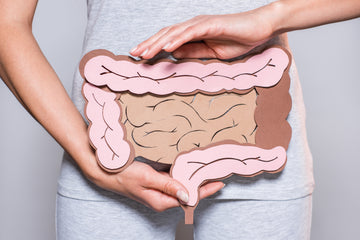Digestive health is important for our overall health. A healthy digestive system helps absorb nutrients and contributes to a strong immune system, better skin health, and a more energetic life. Fortunately, there are several natural ways to improve digestion at home. This article explores various methods, including dietary changes, lifestyle adjustments, exercise, and massage techniques to help you determine how to improve digestion.
Learning How to Improve Digestion Naturally at Home
Improving digestion naturally at home involves a combination of dietary changes, lifestyle adjustments, regular exercise, and massage techniques. Incorporating these strategies into your daily routine can promote a healthy digestive system and enhance your overall well-being. Remember to consult with a healthcare professional before making significant changes to your diet or lifestyle, especially if you have any underlying health conditions. With patience and consistency, you can achieve better digestive health and enjoy the benefits of a more vibrant life.
5 Dietary Changes to Improve Digestion
A well-balanced diet is essential for achieving optimal digestive health. What we consume directly impacts our digestive system's efficiency, influencing everything from nutrient absorption to bowel regularity. By making mindful dietary changes, you can alleviate some common digestive issues - which may include bloating, constipation, and indigestion. Incorporating fiber-rich foods, staying hydrated, and embracing probiotic-rich options are some effective strategies that can significantly improve digestion.
1. Eat a Fiber-Rich Diet
Fiber is essential for a healthy digestive system. It helps add bulk to the stool, promoting regular bowel movements and preventing constipation. Include a variety of fiber-rich foods in your diet, such as:
- Fruits: Apples, bananas, berries, and pears.
- Vegetables: Brussels sprouts, carrots, broccoli, and spinach.
- Whole grains: Brown rice, oats, quinoa, and whole wheat.
- Legumes: Beans, lentils, and chickpeas.
2. Stay Hydrated
Staying well-hydrated is essential for proper digestion. Water is crucial in breaking down fats and soluble fiber, helping them move smoothly through the digestive system. It's recommended to consume at least eight glasses of water each day. Additionally, herbal teas such as peppermint or ginger can be beneficial, as they further support digestive health.
3. Eat Probiotic-Rich Foods
Probiotics are beneficial bacteria that support a healthy gut microbiome. Including probiotic-rich foods in your diet can help improve digestion and reduce symptoms of bloating and gas. Some excellent sources of probiotics are:
- Yogurt: Live and active cultures support digestive health.
- Kefir: A type of milk drink that is fermented and may help improve digestion.
- Sauerkraut: Cabbage that has been pickled/fermented and may support a probiotic diet.
- Kimchi: A Korean dish made of fermented vegetables and spices that support your digestive system.
- Miso: A fermented soybean seasoning used in many traditional Japanese dishes.
4. Avoid Processed Foods
Processed foods often contain unhealthy fats, added sugars, and artificial additives that can disrupt digestion. Try to minimize your intake of processed foods and focus on whole, natural foods instead.
5. Chew Your Food Thoroughly
Chewing food thoroughly is a simple yet powerful practice that significantly enhances digestion. When you take the time to chew your food properly, you break it down into smaller particles, which facilitates easier and more efficient processing by digestive enzymes. Take your time while eating and chew each bite at least 20-30 times.
Lifestyle Changes to Improve Digestion
Our lifestyle choices significantly impact our digestive health, often in ways we might not even realize. It’s not just about what we eat; how we live day-to-day—like how stressed we are, how well we sleep, and our habits—can make a difference. Making a few simple changes to your daily routine can do wonders for your digestion and overall well-being:
- Managing stress,
- Getting enough (and quality) sleep.
- Avoid smoking and excessive alcohol consumption.
Managing Stress Can Aid Digestion
Stress can significantly impact digestion by causing issues like irritable bowel syndrome (IBS) and indigestion. Digestion problems can be a common physical sign of stress, so incorporating stress-management techniques into your daily routine can help reduce stress and include:
- Meditation: Find a restful place and take a few minutes each day to meditate to calm your mind.
- Deep breathing exercises: Practice deep breathing to reduce anxiety and stress.
- Yoga: Engage in regular yoga sessions to promote relaxation and digestive health.
Getting Enough Sleep Can Help Digestion
Quality sleep is crucial for overall health, including proper digestion. When you don’t get enough rest, your body, including your digestive system, doesn’t function at its best. Aim for 7-9 hours of sleep each night. Establishing a regular sleep routine, avoiding screens before bedtime, and creating a calming environment can help improve your sleep quality.
Avoid Smoking and Excessive Alcohol Consumption
Smoking and excessive alcohol consumption can damage the digestive system. Smoking increases the risk of acid reflux and stomach ulcers, while alcohol can irritate the digestive tract and interfere with nutrient absorption. Reducing or eliminating these habits can significantly benefit your digestive health.
How to Improve Digestion with Exercise
Regular physical activity can help your digestive system become regular as well. Exercise increases blood flow to the digestive organs, stimulates intestinal muscle contractions, and helps prevent constipation. Aim for at least 30 minutes of moderate exercise most days of the week. Some beneficial activities include:
- Walking: A simple and effective way to boost digestion.
- Yoga: Certain yoga poses, such as twists and bends, can help stimulate digestion.
- Cycling: A gentle exercise that promotes overall fitness and digestive health.
Massage Techniques That Help with Digestion
Massage is an often-overlooked method for improving digestion. Abdominal massage can help stimulate the digestive organs, increase blood flow, and promote the movement of food through the digestive tract.
Here are some massage techniques you can try at home:
- Abdominal clockwise massage: Lie down on your back and apply gentle pressure with your fingertips around your belly button. Move your fingers in a clockwise direction, following the path of your colon. Continue massaging for 5-10 minutes, focusing on areas that feel tense or tender.
- Kneading massage: To begin a kneading massage, place your hands on your abdomen, with one hand on top of the other. Use a kneading motion, similar to kneading dough, to massage your abdominal muscles. Apply gentle pressure and move around the entire abdominal area for a few minutes.
- Reflexology: Reflexology involves applying pressure to specific points on the feet that correspond to different organs in the body. For digestive health, focus on the arch of your foot, which is linked to the digestive organs. Use your thumb to apply firm pressure and make small, circular motions.
Purchasing a luxury massage chair can make it easier to achieve massage in the privacy of your own home. Having a massage chair at home that provides the massage necessary for relaxation, stress relief, and potentially digestive improvement is more convenient than self-massage or leaving the house to see a massage professional.
How to Improve Digestion in Old Age
As we age, our digestive system can face new challenges that require special attention. Slower metabolism, reduced enzyme production, and changes in gut flora are common issues that can affect digestion in older adults. Luckily, maintaining good digestive health in old age, like any age, requires a combination of mindful eating, regular physical activity, stress management, and proper hydration. By making these adjustments to your lifestyle, you can support your digestive system and enjoy a better quality of life.
Improving Digestion Can Help You Feel Better Overall
You can effectively support your digestive system by making sure you drink enough water, including healthy foods and herbal teas in your diet, and making conscious lifestyle choices. Improved digestion helps your body absorb vital nutrients, minimizes discomfort, and increases your energy levels, leading to a healthier and more energetic life. Implementing these simple changes can significantly improve how you feel daily.
Disclaimer: This content is not medical advice. Please consult with your healthcare professional when considering implementing changes to your health or workout routines to ensure it’s compatible with your needs.




